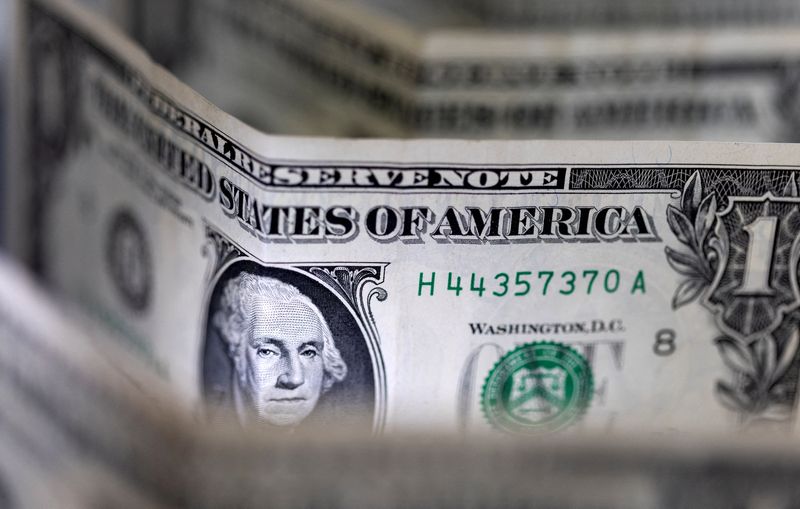Investing.com-- Most Asian currencies fell on Friday and were nursing steep losses against the dollar as hawkish signals on inflation and interest rates saw traders further price out expectations for rate cuts in 2024.
Sentiment towards Asian markets was also rattled by signs of a resurgent U.S.-China trade war, while the People’s Liberation Army was seen conducting extended military drills near Taiwan, ramping up tensions with Taipei.
Dollar at 10-day high as Sept rate cut bets ease
But the biggest source of pressure on Asian currencies was a rebound in the dollar, with the dollar index and dollar index futures steadying at 10-day highs on Friday.
The minutes of the Federal Reserve’s late-April meeting, coupled with several hawkish comments from Fed officials, saw investors grow more wary of sticky inflation, which could in turn delay any plans by the central bank to begin trimming interest rates.
This saw traders largely price out expectations for an interest rate cut in September.
The CME Fedwatch tool showed traders were pricing a nearly equal probability of a cut and a hold- around 46%- in September. Earlier expectations had shown an over 50% chance of a cut.
Japanese yen weakens, soft CPI offers little relief
The Japanese yen’s USDJPY pair rose 0.1% on Friday to an over three-week high, extending a rebound from lows hit in the immediate wake of government intervention seen earlier in May.
The yen took little relief from consumer price index data which showed inflation eased as expected in April, as spending remained weak. The reading raised more questions about just how much headroom the Bank of Japan has to tighten policy further, presenting more headwinds for the yen.
Chinese yuan losses limited by stronger PBOC fix
The Chinese yuan’s USDCNY pair rose 0.05% on Friday, with further weakness in the yuan being limited by a substantially stronger midpoint fix from the People’s Bank of China.
The stronger fix came as a simmering trade war with the U.S., doubts over more stimulus measures and increased tensions with Taiwan presented a wave of selling pressure for the yuan.
The USDCNY pair was close to a six-month high.
Broader Asian currencies retreated. The South Korean won’s USDKRW pair rose 0.3%%, while the Singapore dollar’s USDSGD pair rose 0.1%.
The Australian dollar’s AUDUSD pair fell 0.2%. Most regional currencies were headed for steep weekly losses as the prospect of high for longer U.S. interest rates presented more pressure.
